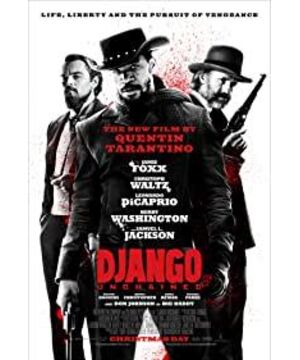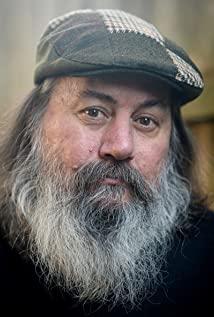Compilation: Stinky
Comment:
"The Rescued Jiang Ge" is Quentin Tarantino's latest hodgepodge, he mixes "black exploitation" and "Italy" The type of "Western" is used to reinterpret the darkest and bloodiest "black slavery" in American history. Maybe he has other meanings, what is that?
In Quentin Tarantino's 2009 work "Shameless Bastard", there is a scene where Nazi officers and soldiers are playing a game of "20 guessing puzzles" and want to point out a famous person. Someone was nominated as "Ape King Kong", he asked: "I have been to the United States?" "Yes." "I was locked up when I was in the United States?" "Yes", the last person asked: " Am I an American nigger?"
This part is a bit provocative and satirical of American justice. Saying such words from the enemy's mouth adds to the pain. This kind of embarrassing teasing has been extended to "Jiang Ge Freed". This kind of sarcasm and acupuncture have become even more severe in this part, and it is not unexpected. "Shameless Bastard" tells the revenge of the Jews in a fictitious way of assassinating Hitler, while "The Freed Jiang Ge" is a blow to "black slavery", like an unforgivable roar.
The English title of the film comes from the classic 1966 Western film "Jiang Ge". The actor Frank Nile of the title character has a glimpse of "Jiang Ge Freed". His cameo is of extraordinary significance. Jiang Ge's sustained effect has been continuing. There is a series of sequels. Quentin, who is familiar with the "Western film type", is naturally handy. The best way to save civilization is to destroy it. This time Quentin's barrel is full of gunpowder, and it is urgent to explode.
In this work, Quentin uses the usual trick again, which is called "Tribute". For example, in 1997 "Sweetback's Song", he used it as a reference for sound and pictures, creating a sense of historical heaviness. Quentin basically didn’t use the methods of director Stanley Kramer to “fully show” racial hostility. "The Freed Jiang Ge" will remind you of many black exploitation films in the 1970s, such as the director James Manson in 1975. In "Mandingo", the black child with rheumatism in it is just like the opening scene of Jiang Ge wearing fetters, bursting and painful. There are also "The Legend of Black Charlie" in 1972, and "Goodbye, Uncle Tom" by Franco Prosperry and Tirro Jacques Petty. Almost no one can compare to Quentin Tarantino, a former film archive administrator.
At the end of "Goodbye, Uncle Tom", there was a series of bloody retaliation: "Black Panthers" attacked the sleeping white bedroom, carried out a massacre, and even threw the baby's head against the wall. . This is exactly the same as the ending of "Jiang Ge Rescued", the same is that the blood is splashed, but the latter has a trace of "joking", which means that "Jiang Ge" had a false intention when shooting white ladies. The closing part, this is a comedic treatment, theorists would call it "juggling."
Quentin Tarantino’s work lacks one main creator, editor Sally Munch, who unfortunately passed away in 2010, does it mean that this person’s absence directly led to "The Rescued Jiang Ge "Dragging rhythm?" Quentin has always been long-winded, because of the lack of good editing, he was over-excited, and there were too many monologues in the film, which sounded like a toast. The film lasts more than three hours, and it seems to be repeating itself. Is this caused by carelessness intentionally or unintentionally? For example, Quentin twice used the stage of women's fainting to bring out a comedy effect. This should be regarded as the category of the film's double climax, which is too much for his personal label.
The two themes of the film revolve around Jiang Ge: the freeman played by Jamie Fox and the Golden Dentist played by Christopher Waltz, against Calvin played by Leonardo and the butler played by Samuel Jackson. Psychologically speaking, this arrangement is interesting. In fact, this binary opposition ultimately fell on the free man and the black housekeeper. Jiang Ge’s identity is constantly changing. Calvin is actually an overhead puppet. The housekeeper is the real mastermind and the axis of evil. In other words Leonardo is a relatively large set. Correspondingly, the German dentist, as a good teacher and helpful friend, also appeared in conjunction with Jiang Ge's crazy revenge and self-rescue.
The word "nigger" appeared many times in a year, accompanied by different language changes, Jackson's roar, Dawn Johnson's slow-down, Leonardo's metamorphosis. These vulgar words may make you come to "Jack Brown" (1997) because of the excessive contempt for black people in the film. Quentin provoked the black director Spike Lee, and the latter was just like Samuel Jackson. Good work partner. In "The Rescue of Jiang Ge", Jackson's Uncle Tom-like character is actually a relatively clumsy imitation. It seems that we can't escape the impression of Jackson in other Quentin works.
We can clearly perceive the "dual opposition" in the text, but Quentin has a big problem in implementation. Can it be said that Christopher’s role is just a repeat of "Inglourious Basterds", full of Quentin-style dialogue, and another "Viennese" German, but the Golden Dentist is less neurotic and a little more cautious. As mentioned above, Dr. Jin and Jiang Ge do not have a close relationship. They are just partners on the journey. All of this is Jiang Ge’s "consciousness", which is reflected in: from slave to servant to bounty hunter, and finally He regained his freedom by coaxing. During this period, Jiang Ge learned to be smooth, in Quentin's own words: speaking is power. Of course, too much talk is also the biggest crux of this movie.
Quentin still uses his method to explain historical issues. Through the character of Jiang Ge, he clearly shows the history of blood and tears of black American slaves, and also achieves a kind of flogging and condemnation. In dealing with the character of Jiang Ge, Quentin is using a cartoon-like attitude and violent performance to face Jiang Ge's opposite-the white man. On the other hand, it is difficult to directly describe the abuse of black people, including dog biting, Mandingo fighting, and so on. In "Shameless Bastard", Quentin showed the brutal nature of the Nazis. In "The Freed Jiang Ge", he showed the suffering of black people and used the unique way of filmmakers to talk about history. In short, Quentin Still living in his own world, he is too arrogant.
View more about Django Unchained reviews











